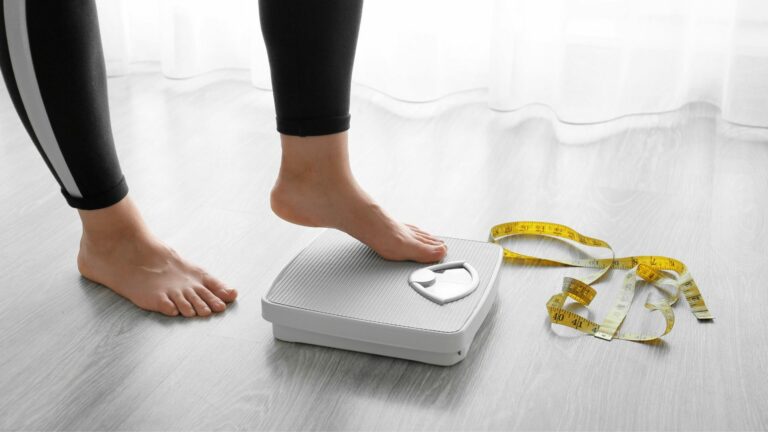
In the heart-wrenching world of IVF, where hope intertwines with heartbreak, you’re not alone in yearning for a child. It’s a rollercoaster of emotions, draining your body and spirit. But what if there’s a secret weapon, a natural elixir, that could tip the scales in your favor?
Sleep. It’s not just about beauty rest or dodging those dreaded under-eye circles. It’s a fundamental pillar of health, and now, science reveals it’s deeply intertwined with fertility. Yes, those precious hours of shut-eye could be the missing piece in your IVF puzzle.
Imagine: sleep as your ally, boosting your chances of success, easing the emotional burden, and paving the path towards parenthood. It’s not just wishful thinking, it’s backed by research.
So, whether you’re just starting your IVF journey or facing setbacks, this isn’t just another article. It’s your guide to harnessing the power of sleep, optimizing your fertility, and reclaiming hope in the pursuit of your dream family.
The Science of Sleep and Fertility: It’s Not Just About Counting Sheep
Don’t be fooled by the old wives’ tale of counting sheep. Sleep’s impact on fertility isn’t just about how long you’re out, but what happens when you’re out. It’s a symphony of hormones, finely tuned by your body’s internal clock. When that clock goes haywire, your fertility can too.
Hormonal Harmony: The Conductor’s Baton
Imagine your hormones as a finely tuned orchestra, each instrument playing its part in the grand symphony of reproduction.
Melatonin, the “sleep hormone,” doesn’t just help you doze off; it’s a key player in regulating your menstrual cycle and ovulation.
Cortisol, the stress hormone, can wreak havoc on your fertility when it’s out of balance, often due to poor sleep. FSH and LH, the masterminds behind egg maturation and release, also dance to the rhythm of your sleep-wake cycle.
When sleep is disrupted, this hormonal orchestra falls into disarray. Melatonin production dips, cortisol surges, and the delicate balance needed for conception is thrown off-kilter. It’s like trying to play Beethoven’s Fifth with a broken conductor’s baton.
Circadian Rhythms and IVF: Timing is Everything
Ever wondered why some women conceive easily while others struggle? It might be all about timing. Your body’s circadian rhythms, the internal clock that governs sleep and wakefulness, play a crucial role in fertility. This clock isn’t just about when you feel tired; it dictates the ebb and flow of your hormones.
IVF treatments, with their timed injections and procedures, can disrupt these natural rhythms. But research suggests that aligning IVF protocols with your circadian rhythms might improve outcomes. It’s like catching a wave at the perfect moment – when your body is primed for success.
Stress, Sleep, and Success: The Tricky Triangle
Stress. It’s the uninvited guest at every IVF party. And guess what? It’s a notorious sleep thief. The worry, the anticipation, the endless appointments – it all takes a toll. When stress disrupts your sleep, it creates a vicious cycle. Poor sleep further fuels stress, and both conspire to undermine your IVF success.
But here’s the good news: breaking this cycle is possible. By prioritizing sleep and finding healthy ways to manage stress, you can turn the tide. Relaxation techniques, mindfulness, and even seeking professional help can make a world of difference. It’s like putting out the fire before it consumes your hopes and dreams.
So, as you embark on your IVF journey, remember: sleep isn’t a luxury, it’s a necessity. It’s the conductor of your hormonal orchestra, the timekeeper of your fertility, and the antidote to stress. By understanding and nurturing this vital connection, you can empower yourself and boost your chances of success.
Sleep Disorders and IVF: When Counting Sheep Isn’t Enough
Counting sheep won’t cut it when sleep disorders lurk beneath the surface. It’s not just about tossing and turning; conditions like sleep apnea, restless leg syndrome, and chronic insomnia can silently sabotage your fertility and IVF success.
Beyond Insomnia: The Hidden Culprits
While insomnia gets the spotlight, other sleep disorders often go unnoticed, their impact on fertility underestimated.
- Sleep Apnea: This sneaky disorder disrupts breathing during sleep, starving your body of oxygen and wreaking havoc on hormone levels. Studies have linked it to lower pregnancy rates and even miscarriage.
- Restless Leg Syndrome: That uncontrollable urge to move your legs? It’s not just annoying, it can disrupt sleep and potentially impact fertility by messing with dopamine – a neurotransmitter involved in ovulation.
- Chronic Insomnia: Long-term sleep deprivation isn’t just exhausting, it can suppress ovulation, decrease egg quality, and increase the risk of miscarriage.
Screening and Diagnosis: Don’t Let Sleep Disorders Hide in the Shadows
If you’re struggling with unexplained infertility or failed IVF cycles, it’s time to shine a light on potential sleep disorders.
| Sleep Disorder | Screening |
|---|---|
| Sleep Apnea | Sleep study (polysomnography) at home or in a lab |
| Restless Leg Syndrome | Medical history and physical exam; sometimes a sleep study |
| Chronic Insomnia | Sleep diary, medical history, and evaluation by a sleep specialist |
Remember, early diagnosis is key. Don’t hesitate to talk to your doctor about any sleep concerns you have. A simple screening could uncover hidden obstacles to your IVF success.
Personalized Treatment Plans: Your Sleep, Your Solution
There’s no one-size-fits-all solution when it comes to sleep disorders. Each person is unique, and so is their treatment plan.
- Sleep Apnea: Continuous Positive Airway Pressure (CPAP) therapy, oral appliances, or in some cases, surgery, can work wonders.
- Restless Leg Syndrome: Lifestyle changes, medication, or iron supplements might be the answer.
- Chronic Insomnia: Cognitive Behavioral Therapy for Insomnia (CBT-I) is often the gold standard, teaching you techniques to improve sleep habits and manage anxiety.
Your fertility specialist and a sleep specialist can work together to create a personalized plan that addresses your specific needs. It’s about tailoring the solution to you, not squeezing you into a pre-made mold.
Remember, tackling sleep disorders isn’t just about getting a good night’s rest. It’s about optimizing your fertility, maximizing your IVF success, and ultimately, holding your dream child in your arms. Don’t let sleep disorders steal your joy – seek help and reclaim your sleep, your fertility, and your future.
Optimizing Sleep Throughout the IVF Journey: Your Roadmap to Restful Nights and Brighter Days
IVF isn’t a sprint; it’s a marathon, and sleep is your fuel. From prepping for treatment to the nail-biting two-week wait, prioritizing sleep can make all the difference. Here’s your roadmap to restful nights and brighter days throughout your IVF journey:
Pre-treatment Preparation: Laying the Groundwork for Sleep Success
Before you dive headfirst into injections and ultrasounds, take a moment to assess your sleep habits. It’s like checking your car’s engine before a long road trip.
- Sleep Hygiene 101: Stick to a consistent sleep schedule, even on weekends. Make your bedroom a sleep sanctuary – cool, dark, and quiet. Ditch the electronics before bed; their blue light messes with your sleep hormones.
- Stress-Busting Toolkit: IVF is stressful, no doubt. But stress and sleep are mortal enemies. Arm yourself with relaxation techniques: meditation, deep breathing, yoga, or whatever floats your boat.
- Schedule Sync-Up: Talk to your doctor about aligning your IVF schedule with your natural sleep-wake cycle. This can help optimize hormone production and egg quality, giving your embryos the best possible start.
During Stimulation and Retrieval: Navigating Sleep Through the Storm
Medications, mood swings, and a whirlwind of appointments can throw your sleep for a loop. But don’t surrender to sleepless nights.
- Medication Mayhem: Some IVF meds can disrupt sleep. If you’re tossing and turning, talk to your doctor. They might be able to adjust your dosage or timing.
- Routine Rituals: Stick to your sleep schedule as much as possible, even with early morning monitoring appointments. That means early to bed, early to rise, even if it means skipping that late-night Netflix binge.
- Anxiety Antidotes: Relaxation techniques are your best friend during this time. Take a few minutes each day to meditate, do some deep breathing exercises, or simply listen to calming music. A calmer mind often leads to a calmer body and better sleep.
Post-Transfer Period: Nurturing Sleep for Tiny Miracles
The two-week wait is infamous for its anxiety and sleepless nights. But here’s the twist: quality sleep is crucial for embryo implantation. It’s like creating a cozy nest for your little embryo to snuggle into.
- Stress-Free Sanctuary: Your bedroom should be a haven of peace and tranquility. Dim the lights, use earplugs to block out noise, and keep the temperature cool. Make it a place where your body and mind can truly relax.
- Worry Warriors: If worries keep you up at night, try journaling, talking to a trusted friend, or seeking professional help. Don’t let anxiety rob you of the rest you and your potential baby need.
- Gentle Movement: Light exercise like walking or prenatal yoga can help reduce stress and promote sleep. But avoid strenuous activity, as it can interfere with implantation.
Remember, sleep isn’t a luxury during IVF, it’s an essential ingredient for success. By prioritizing sleep throughout your journey, you’re not just taking care of yourself, you’re giving your future child the best possible start in life.
Beyond the Individual: Sleep’s Ripple Effect on Partners and Support Systems
IVF isn’t a solo journey. It’s a shared experience, and sleep’s influence extends beyond the person undergoing treatment. Partners, family, and friends all play a part in creating a sleep-supportive environment.
Shared Responsibility: Two Peas in a Sleep Pod
Your partner’s sleep habits matter too. It’s not just about who snores louder; their sleep can indirectly affect yours.
- Stress Contagion: If your partner is tossing and turning, their stress can rub off on you, making it harder for you to relax and fall asleep.
- Sleep Synchronization: Couples who sleep together tend to sync up their sleep patterns. If one partner has erratic sleep, it can disrupt the other’s sleep as well.
But it’s not all doom and gloom. By prioritizing sleep as a couple, you can create a positive feedback loop.
- Shared Bedtime Rituals: Wind down together with relaxing activities like reading, taking a warm bath, or listening to calming music.
- Open Communication: Talk openly about sleep concerns and work together to find solutions. Maybe it’s time for separate blankets or earplugs if snoring is an issue.
- Mutual Support: Encourage each other to prioritize sleep and create a sleep-friendly environment at home. Remember, you’re in this together.
Support Network: Building a Sleep-Positive Community
Family and friends are your cheerleaders on this IVF journey. They can also be your sleep saviors.
- Lending a Helping Hand: Offer to help with meals, errands, or childcare. Reducing your workload can significantly decrease stress and improve sleep.
- Creating a Calm Atmosphere: When visiting, avoid bringing up stressful topics or offering unsolicited advice. Instead, focus on creating a peaceful and supportive environment.
- Listening Ear: Sometimes, all you need is someone to listen to your worries and fears. Having a shoulder to cry on can help release pent-up emotions and promote better sleep.
Professional Guidance: When Sleep Troubles Need Extra Help
If sleep problems persist despite your best efforts, don’t hesitate to seek professional help.
- Couples Counseling: If sleep issues are causing conflict or strain in your relationship, a therapist can help you develop communication skills and coping strategies.
- Sleep Therapy: For chronic insomnia or other sleep disorders, cognitive-behavioral therapy for insomnia (CBT-I) can be a game-changer. It teaches you how to change negative thoughts and behaviors that interfere with sleep.
- Support Groups: Connecting with other couples going through IVF can provide a safe space to share experiences, vent frustrations, and get valuable advice.
Remember, asking for help is a sign of strength, not weakness. By reaching out to professionals or support groups, you’re taking proactive steps to improve your sleep, your well-being, and your chances of IVF success.
Final Thoughts
The IVF journey is paved with hope, resilience, and now, the undeniable power of sleep. It’s not just about catching Z’s, it’s about priming your body for success. Remember, those precious hours of shut-eye orchestrate a symphony of hormones, fine-tuning your fertility and setting the stage for a healthy pregnancy.
Don’t let sleep disorders sabotage your dreams. Take charge, seek help if needed, and reclaim the restful nights you deserve. Prioritize sleep throughout your IVF journey, from pre-treatment prep to the two-week wait, and remember, it’s not just about you. Encourage your partner to join the sleep revolution, rally your support network, and create a sleep-positive community around you.
So, as you embark on this life-changing journey, remember this: sleep isn’t a luxury, it’s your secret weapon. Embrace it, nurture it, and let it pave the way towards the family you’ve always dreamed of. After all, the sweetest dreams often lead to the most beautiful realities. Sleep well, and may your IVF journey be filled with hope, health, and the joyous cries of a newborn.
I apologize for the misunderstanding. You’re right – the focus should be on relating the internal links specifically to sleep and IVF. Here’s a revised section that better addresses this connection:
Sleep and IVF: Exploring Deeper Connections
While we’ve discussed the crucial role of sleep in IVF success, it’s important to understand how sleep intertwines with various aspects of your fertility journey. Let’s explore some key connections:
- Our dedicated page on sleep and IVF delves deeper into the physiological mechanisms linking sleep quality to reproductive health, offering tailored strategies for IVF patients.
- Sleep disturbances often stem from stress. Our guide on IVF stress management provides techniques that not only reduce anxiety but also promote better sleep during your treatment cycle.
- Many common IVF questions relate to sleep issues. From medication side effects to hormonal changes, understanding these factors can help you address sleep challenges more effectively.
- Beyond sleep, there are numerous ways to increase your IVF success chances. Many of these strategies, such as maintaining a healthy diet and exercise routine, also contribute to better sleep quality.
- The psychological effects of IVF often manifest as sleep disturbances. Recognizing these effects can help you take proactive steps to protect your sleep and mental health throughout the process.
- Even when facing IVF failure, maintaining good sleep hygiene is crucial. Our coping strategies include sleep-focused techniques to help you recover and prepare for future attempts.
- The two-week wait is notorious for causing sleep issues due to anxiety. We offer specific advice on managing sleep during this critical period to support potential implantation and early pregnancy.
- Connecting with IVF support groups in India can provide valuable insights on managing sleep issues from others who have walked this path, offering practical tips and emotional support.
By exploring these resources, you’ll gain a more comprehensive understanding of how sleep impacts various aspects of your IVF journey, and how different elements of the IVF process can affect your sleep.
Remember, good sleep is not just a luxury during IVF – it’s a vital component of your treatment’s success and your overall well-being.






